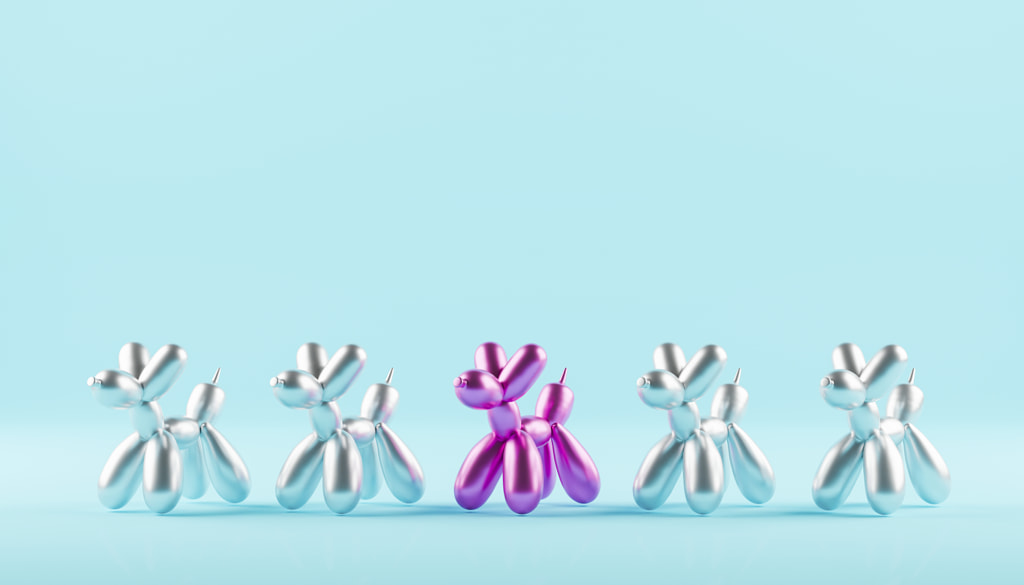What Is “Imposter Syndrome” & How Does it Affect Photographers?
Have you ever felt like you have a difficult time taking ownership of your achievements? Do you consistently feel like a fraud and can’t believe that someone is actually paying you for your photography? Do you get a false sense that your weaknesses or insecurities will get exposed and that other photographers are more deserving of where they’re at in their careers? Do you feel like you know nothing compared to the majority of other photographers who seemingly have it all figured out? Lastly, do you have crippling perfectionism that affects your ability to complete your work?
If you’ve answered yes to some or all these things, you’re likely suffering from an invisible ailment that especially plagues creative individuals known as “Imposter Syndrome”. Before we talk about some remedies to mitigate and manage Imposter Syndrome, let’s first dig deeper into what imposter syndrome is and the mechanics behind this thought process so that we have a better understanding of what goes on in the frameworks of our minds when it occurs.

Many photographers face Imposter Syndrome on the daily and it is one of the reasons why photographers unknowingly sabotage their own paths to success. Imposter Syndrome is essentially a false reality that our minds create to convince us that we are unworthy or undeserving of a role, accomplishment, self-satisfaction, promotion, opportunity, etc. Even when we make substantial progress in our careers, photography, relationships, etc. the brain continually reminds us of our shortcomings and insecurities and fixates on those negatives as compromising threats to our preservation.
This is a defense mechanism of our 200,000-year-old brain. It naturally fixates on negative thoughts to protect us from harm. This is a useful tool in evolution for survival. As Neanderthals, if we focused on the alligators down by the river, we knew to tell the rest of the tribe and to avoid going to get drinking water out of pure survival. Our brains haven’t caught up and are still wired to constantly be looking out for threats and more so now, creating threats. In the modern age, the brain has created imposter syndrome to defend your ego and sense of self from rejection, loss, conflict, etc.
If your brain can convince you that where you are at in your career, the kind of role you’re in, etc. is undeserved then it can prevent you from ever having to potentially face pain. Your brain thinks it is protecting you by generating thoughts that make you never take any risks, never strive for more, and live in your comfort zone. If your brain can convince you to stay where you are, play it safe, and avoid uncharted waters, then it will never have to face the pains of rejection, conflict, and discomfort which it faultily deems as survival threats.

Now mix in a world where we are glued to our smartphones and are always being fed the absolute best images and videos. This is simply due to the nature of the attention economy and that the more engaging, absurd, or stunning a piece of content is, the more time we will spend within that certain app. When this happens, our brains become trained to believe that the very best images and videos are what is normal.
Think about it this way, theoretically, if you were constantly shown ads on TV or YouTube of people buying and driving Ferraris, but you never actually stepped outside of your house to see what the majority of people actually drove, you would easily be able to come to the conclusion that everyone must drive Ferraris.
This is a completely hypothetical scenario, however in this example, if I told you that Instagram and other social media apps tried their best to only show you the best of the best and shielded your attention from anything that remotely smelled of mediocrity, you would be able to see the scary parallel and the consequences of that in relation to mental health.

Once your brain begins to believe that most images posted online are world-class and that most photographers are out-of-this-world talented, we can spiral into a dark pit of comparison and unhealthy competition. We lose sight of the fact that in anything we do, we are only ever truly meant to compete with ourselves and become a better version of yesterday’s self. If we develop severe insecurities regarding our work and how we are externally perceived as a photographer from an early stage in our photography journey, it will only lead to needing to “unlearn” down the road as hurdles, adversity, and failure become more hard felt and painful instead of embraced.

Now that we have a better understanding of what causes imposter syndrome in photographers and what it actually is, let’s discuss some of the ways to mitigate these limiting beliefs and toxic thoughts so that we can focus on how to get to where we want to go on our photography journey.
1. Celebrate Wins And Success Regardless of How Big or Small They Are

Many people find it so easy to criticize themselves and take fault when something they were pursuing fails or doesn’t work out. It’s easy to be hard on yourself as your own biggest critic. However, many of these same individuals struggle to see and acknowledge their personal role in achievement. You must be able to fight through the discomfort of taking ownership of your accomplishments even if it is only partial ownership.
Certain individuals can feel awkward and uncomfortable noting their role in a successful endeavor because they either A) subconsciously feel like they really didn’t deserve it or B) they have humility and feel celebrating a win will make them appear arrogant and conceited. To point B I say, no one says that you must celebrate wins publicly. Whether you choose to broadcast your successes is entirely up to you and there are ways to share personal achievements online in ways that display confidence, pride, and assertiveness rather than arrogance.





